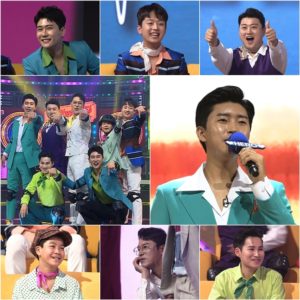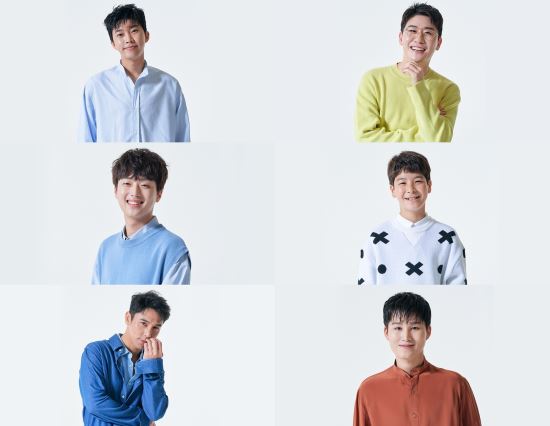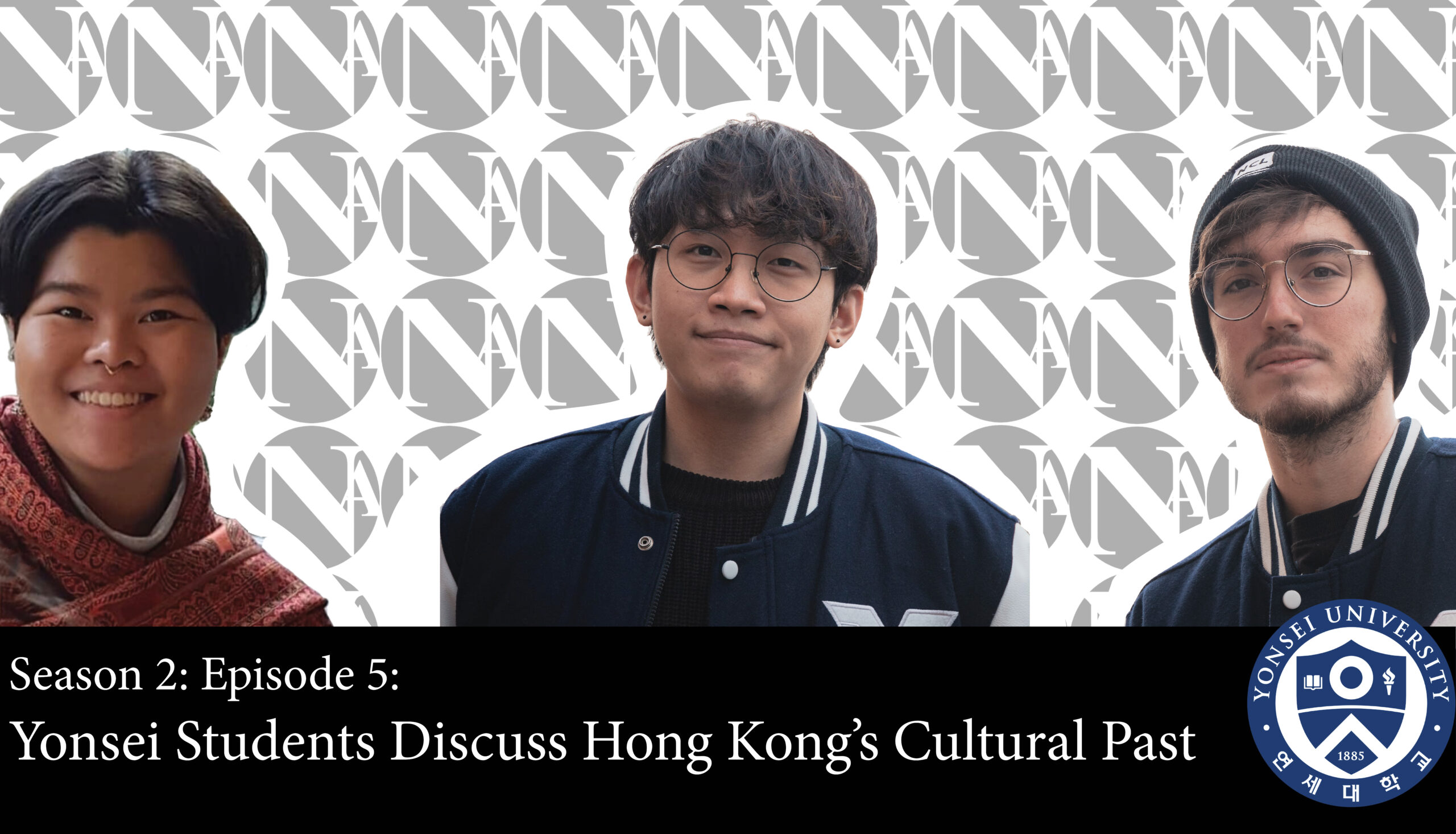Becoming an idol star’s fan is not just for teenagers. Parents can have idol biases too. This all started because of an unlikely music genre; Trot.
Trot is a popular genre of Korean music characterized by its repetitive rhythms and vocal inflections. Trot originated in Korea during the Japanese colonial era and was influenced by Korean classic, Japanese, American, and even European music. Its lyrics include candid emotions about life, love, and the nation’s poverty, and has been sung and loved by older generations in Korea. Although trot music was very popular until the 1980s, it was at times mocked as “Ppongjjak”, meaning “cheap music.” Trot has given way to the rise of a new form of popular music coming in the 1990s, what we now know as K-pop. Today, Trot is considered old people’s reminiscent of their past.
Trot’s old and forgotten glory is staging a comeback with the smash-hit success of a TV show, Tomorrow is Mr. Trot. Mr. Trot, for short, is an audition program for male trot singers or talents who dream to be trot stars. The program started with the lofty aim to make K-trot the next K-pop. At first I was skeptical, but I now stand convinced that this could be a possibility.
Mr. Trot’s final episode’s rating was 35.7%, an astounding number since Koreans have preferred to watch TV programs via VOD (Video on Demand), YouTube or streaming services like Netflix. The program’s format was nothing new as South Koreans have gone through many so-called “people producers’ auditions,” but this genre was new to the format. This trot boom had already started last year, but Mr. Trot led this vogue to reach its peak. This year will be a real start for trot’s resurgence and here are some reasons why.

Top 7 Participants singing for the final round. (Source: TV Chosun.)
Old Fads Make a Comeback
Koreans say there is no new fashion, just old. This also applies to Mr. Trot fever. Trot and audition programs are not new, but it has been rare to see various aspects of trot singers like the show offered. Unless trot singers were already popular, or their songs hit the charts, they could hardly be seen on TV. This made it hard for people to discover new trot singers and become excited about their appearances on television.
Since a variety show designed for trot singers has been almost nonexistent for the past few decades, most of Mr. Trot’s participants were not largely known to the public. Instead of being televised, trot singers usually travel around the country and sing for local events. Since they had to sing with very poor audio technology at small local events, trot singers have been known to develop good singing skills to survive in the industry. TV Chosun, the channel behind Mr. Trot provided participants with the finest music equipment, but this could never have impressed viewers unless they were not good at singing or performing.
Participants include new and old trot singers who were not popular before the show, trot talents who appeared on TV or won top prizes in KBS (Korean Broadcasting System)’ monumental program, National Singing Contest. Aside from their musical background, some of them have different lives such as a single dad and an office worker at Samsung Electronics. The spectrum of participants was extremely broad, even including elementary school children, which helped the show grab people’s attention in its early stages.
In the show, participants sang famous trot songs by old successful trot singers. This stimulated Korean old generations’ nostalgia and brought them in front of the TV every Thursday. For younger generations, “Trot is the new music,” culture commentator, Jung Duk-hyun told the Korea Herald. Most young generations including myself never tried to watch the show, but were naturally exposed to it because of their parents.

Lim Young-woong bursting into tears after singing. (Source: Topstar News)
Tearjerking Epics
Along with contestants’ breathtaking weekly performances, life stories of participants who are ranked in the Top 7 were epic portrayals. This gave strong narratives to the show other than mere competition.
For example, the winner of the show, Lim Young-woong’s life story was likened to that of a hero. Interestingly, his name Young-woong means ‘hero’ in Korean. In his first appearance, he sang a song for his mother who raised him alone while running a small hair salon after his father’s sudden death. His difficult childhood added an emotional layer to his talent, and he was not only praised for his excellent vocal control and evocative voice, but many cried during his performance. In the final episode, he sang a song for the first time in public called “Betrayer,” which his father used to sing for his mother. Until that moment, he could not even imagine singing the song publicly. He burst into tears moving the audience.
Kim Ho-joong, another contestant, was already famous for his life story before the show. He used to be a juvenile delinquent, but thanks to his teacher, he turned into a successful vocalist. Another contestant, Jeong Dong-won, was raised by his grandparents after his mother left. Sadly, his grandfather, who introduced him to trot music, passed away due to cancer during filming. The sixth winner, Jang Min-ho was a former idol star who could not have had financial success until he turned into a trot singer. He also shared his regret that his father could not see his artistic success in his final stage.
Everyone Gets a Vote
But was it all because of these dramatic stories that Mr. Trot featured?
Mr. Trot introduced a change in the way older generations enjoy television shows. The show’s unprecedented popularity despite not airing on a public broadcaster confirms that so-called “Korean people’s auditions” are not exclusive properties for younger generations in their teens and twenties. Indeed, the popular voting system for audition participants became a culture for every generation.
Until Mr. Trot’s final episode, voting for their favorite participants online and sending paid texts were left to younger generations. However, the idea of choosing “my star” worked just as well among more mature audiences, most of whom are in their fifties and sixties. They did not hesitate at all to become idol fans like their children.

Mr. Trot’s Top 7 Finalists at the emergency live show. (Source: OSEN.)
Older generations fervent love for Mr. Trot rose to the top in its finale when TV Chosun introduced the text voting system. Oh, an avid fan of Mr. Trot and star Lim Young-woong told NOVAsia that, “For a month, I voted for my favorite star every day when the clock turned to midnight. I even told my daughter to vote for my star every day. I became so emotional every time Lim Young-woong sang and I was so happy to see him win.” Oh, who is in her fifties is probably not the only older viewer who did so.
The older generation was willing to spend 100 won to send a text to vote for their favorite audition participants. The total number of texts received was a phenomenal 7.73 million. The sudden influx of texts at the end of the show prevented the show from announcing the winner on the day of the final. This was controversial and criticized by fans, so TV Chosun had to make an emergency live show just to announce the result after two days.
The Impact of Coronavirus
Even with tremendous support from people, the show was not always easy. Due to coronavirus, the show had to cancel its original plan for the final stage and move the date. At first, they were supposed to have an audience, but severe risk of infection barred people from watching the performance live. Concert tours with contestants who were ranked in the final twenty were pushed from April to May.
However, social distancing helped the show’s high ratings. The show was aired on Thursday nights since some people prefer to hang out on Thursdays, calling it ‘fire Thursday’ after the partial advent of a four-day week. The show contributed to giving another type of pleasure for people who were unable to go outside. Reruns aired every weekend and allowed viewers to follow the show easily even if they had missed an episode.
K-Trot Fever is Here to Stay
Mr. Trot’s came to an end on March 12, but special episodes followed. Taste of Mr. Trot includes interviews with Top 7 winners and shares behind the scene footage. The show’s heat still continues and average ratings for its sequel, The Call Center of Love is over 20%.
Breaking the old myth that trot is for the elderly, Mr. Trot’s enormous success has triggered a new phase in the cultural industry. During the competition, participants sang trot music combined with other genres including vocal, rock, and even electronic dance music. Competition among people from different age groups impressed viewers and appealed to younger generations too. In short, this has united all generations in Korea.

Scenes from Mr. Trot’s sequel, The Call Center of Love. (Source: TV Daily)
Mr. Trot brought something new not only to the cultural industry, but it changed trot fans’ lives too. The show is often referred to revive fun in people’s lives after the coronavirus outbreak. Oh said, “I used to work out with others at a sports center but I could not because of coronavirus, so I was a little depressed. But now, I listen to Lim’s songs every day on YouTube. I feel like I have a new hobby and feel like I am going back to my younger days.”
The show also gave a chance for different generations to understand each other. In the past, young generations’ sending cheerful texts to vote for their favorite stars had been frowned upon. Another Mr. Trot fan, Park who is in his sixties told us, “I voted for two of my favorite singers with my family. It was a new experience that my family could enjoy. I now finally understand younger generations’ feelings towards their stars through Mr. Trot.”
To me, listening to trot was not only an entirely new experience, but people’s attitudes towards the audition results were also new. Many Koreans are hungry for fairness in their society more than ever after a series of social scandals. While watching the show, there were some occasions when I could not understand the panel’s grading. Maybe that made me pour more effort into final text voting, so that I could voice my opinions about the competition.
Other than memorable performances, Mr. Trot provided some vicarious pleasure to wield certain control in decision making for all generations with the same objective of “making my star win.” Fast-beat trots gave us delight, and slow-beat trots made us look back at our lives. Trot songs I learned through the show have helped me form stronger bonds with the older generation. This is why I believe that K-trot fever is here to stay.







1 Comment
june seghni
4 years agoThis is a nice article. I watched Mr Trot in the UK via the uploaded videos on TV Chosun’s youtube channel,and depsite not speaking korean I enjoyed it so much. There’s such a high standard of singing, a great variety of songs , and so much emotional warmth and fun which really drew me in. I also look forward every Thursday to watching Call Centre of Love, and I follow social media stories about the Top 7 and other singers like the new ‘Mr T’ group made up of 4 other Mr Trot participants. I can read just enough hangul to search for content and read the video titles, otherwise Papago is my friend!
I love my Hero, Lim Young Woong, but they are all charming.Young Tak has a fantastic voice and a great energy; a total professional. Lee Chan Won has a distinctive tone and a great sense of comedy (I saw a youtube video of him as a child and he had it even then). Kim Ho Joong can do opera and tear jerking ballads equally well. Jeong Dong Won astonishes me with the emotional range he has given his age, and the sheer number and variety of songs he knows. Kim Hee Jae sings and dances with total flair, and Jang Min Ho has a smooth charm that captivates when coupled with his honeyed voice.
But Lim Young Woong was a worthy winner in my eyes. He has a beautiful voice,at home in fast paced songs but best (in my opinion) when portraying the heartfelt emotions that underly so many great korean songs. Watching him perform songs such as the late Kim Kwang Seok’s ‘ The Story of A Couple in Their 60s’,it seems he radiates genuine feelings from a centre of calm stillness. Watching him perform feels like being in a bubble in which time and the chaotic world around me temporarily stops ..
I’m british. I know I only understand half of what’s going on in these Tv shows. I envy Korean speakers who get it all. If it can affect me so much, how much more must they enjoy it !
Comments are closed.